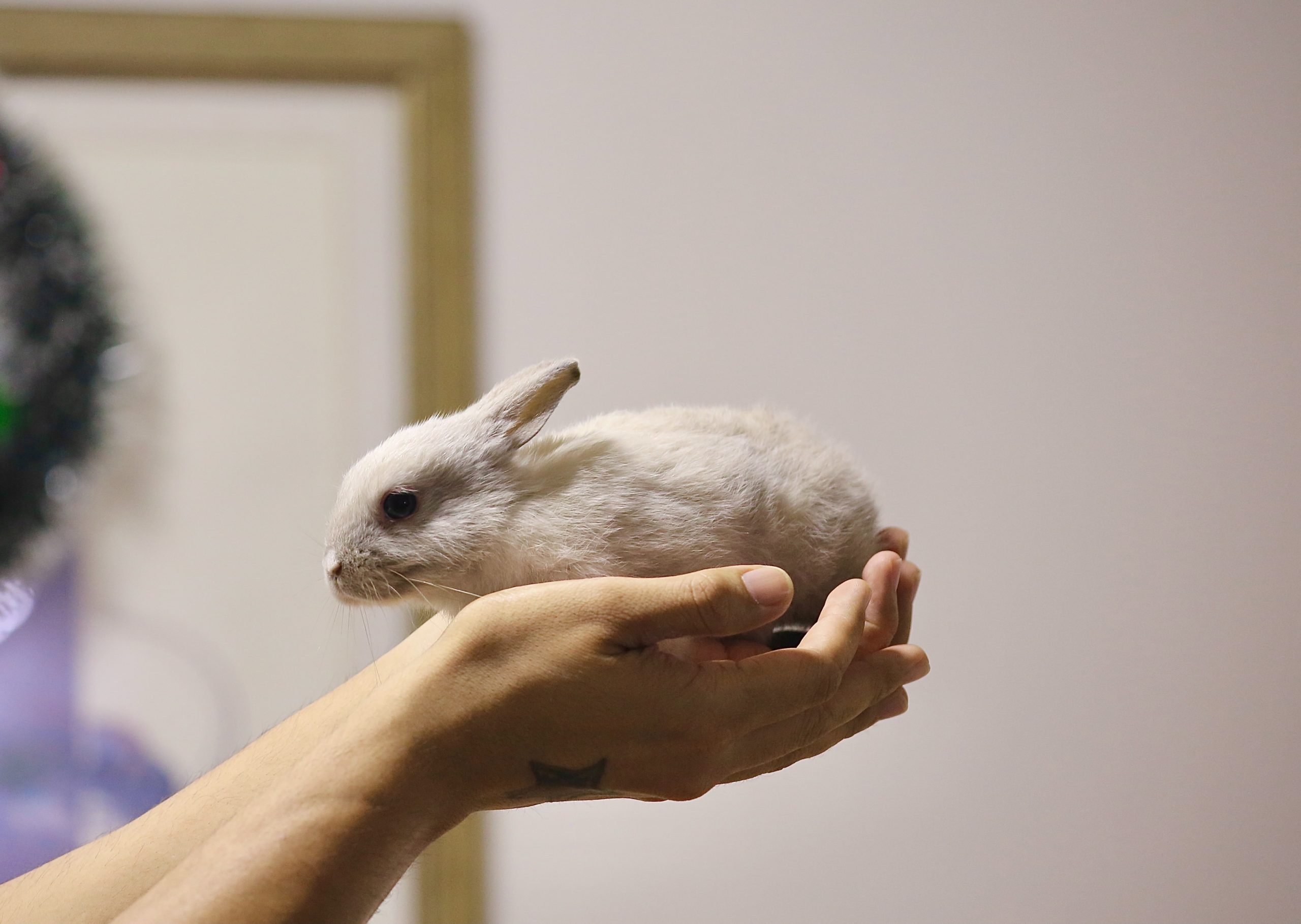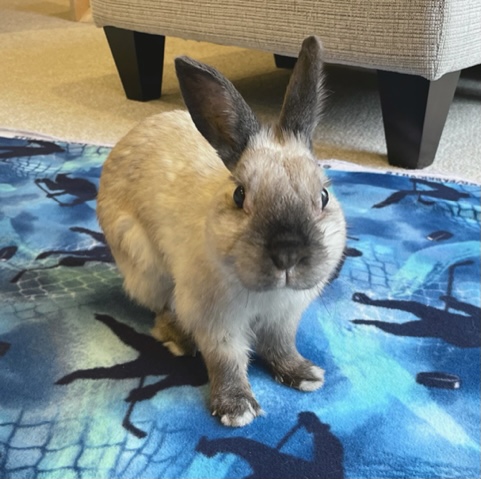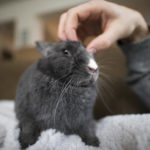
Everyone loves baby bunnies. When you see them playfully bouncing around in Easter commercials, looking up at you with those big eyes and twitchy noses, or snuggling with their fellow rabbits, it is easy to feel like you just have to bring one home… and many do. But what happens next?
People who buy rabbits on a whim tend to forget that their baby bunny does not stay a baby forever.
As the rabbit grows up and people realize that rabbit ownership means more than just cooing about how cute the bunny is, they may lose interest and feel like they are “done with” the bunny. As a result, rabbits are neglected, surrendered, or abandoned in high numbers.
Contributing to this pattern is the common misconception that bunnies have short lifespans that require minimal commitment from owners. In reality, healthy bunnies receiving proper care can live for more than ten years, with many living well into their teens. Therefore, in terms of long-term time commitment, rabbits are on par with many breeds of dogs and cats.
Furthermore, a rabbit’s needs change as they get older, especially if they reach their elder years. Older bunnies typically require more frequent veterinary care, which often includes various medications that must be administered on a regular schedule. In other words, properly caring for an aging rabbit means more medical expenses as well as a more significant daily time commitment.
The way you interact with your bunny also changes as they age. They won’t be entertaining you with big, twitchy jumps in the air or fast laps around the room anymore. They become more fragile, have less energy, and require gentler activities and interactions – just like people do when we get older. Often, this can mean making modifications to your bunny’s home and routine to accommodate any mobility limitations they may have.
I can speak from personal experience: my bunny, Prince, joined my family as a rambunctious, rascally baby and lived to be nearly 14 years old. When he was young, it was hard to imagine that one day I would be giving him daily pain medications, wrapping up sores on his feet, and drying off his leaky tear ducts each night. In his old age, Prince was still a happy bunny who loved to cuddle, snack on his favourite treats, and toss his toys around, but his needs had changed dramatically compared to when he was a healthy, spry, young bunny.

For instance, his annual vet check-ups were increased to three or four times a year to better monitor his ever-growing list of conditions. Like many elderly rabbits, Prince experienced arthritis that affected his mobility as well as other internal body systems. As a result, we modified his home multiple times over the years to maintain his quality of life. He began having problems with incontinence, so we purchased countless pee-pads to keep his home clean. He was put on various medications to manage different ailments over the years, which only increased in quantity and dosage frequency as he got older. By the time he was 13, much of my daily routine centered around caring for Prince and helping him manage his old-aged-bunny symptoms.

Of course, not every rabbit is lucky enough to live into their elder years. But many do, and this is a reality people need to be prepared for when bringing a bunny into their family.
A bunny should not be a casual purchase that owners dispose of once they are “done with” them; they should be held in the same high regard that people tend to hold their beloved cats and dogs. They are a long-term commitment that only requires more responsibility as they get old and become increasingly dependent on you.
Looking after an aging bunny is not easy.
However, this should not necessarily deter you from welcoming a bunny into your family.
Taking care of Prince in his old age is one of the most rewarding things I have ever done. While I loved him deeply throughout his life, our bond was profoundly strengthened in his old age by the new routines we developed. I would have happily taken care of him for the rest of my life, if only I could.
Ultimately, you get out what you put into a relationship with a bunny: if you are willing to adopt a bunny into your family for the long haul and take seriously your responsibility to lovingly care for them throughout their life, the relationship you form is worth every bit of effort.
Article written by:

Jane Billingsley
Jane is a long-time rabbit owner and animal-lover. She has owned rabbits for most of her life, and is passionate about advocating for the ethical treatment of rabbits and animals in general. She is currently working towards a Bachelor of Arts degree at the University of Alberta, and hopes to pursue further education specializing in animal welfare and conservation. Outside of school, Jane spends her time writing, playing soccer, and cuddling with her bunny, Prince.



